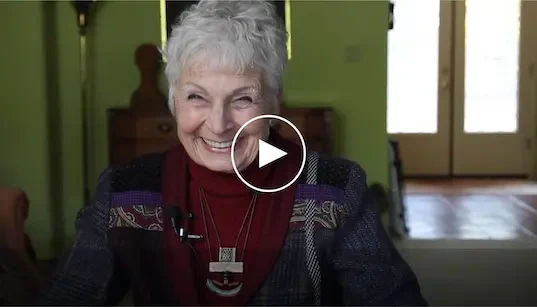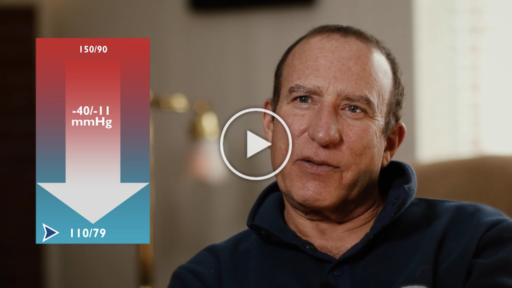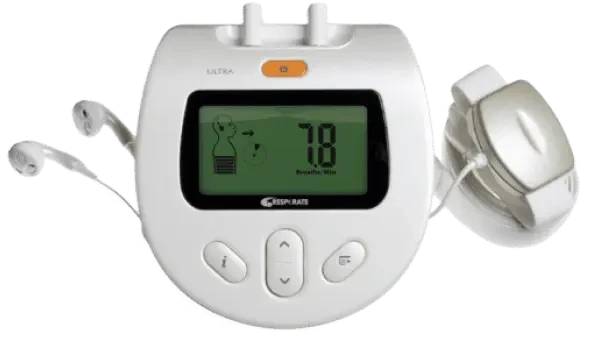This is a great way to lower your high blood pressure with out the toxic side effects of some hypertension medication. In fact more and more physicians are looking for alternatives. As their patients are becoming more informed about the medications they take, some physicians are realizing the need for a more natural approach to doing so. Here are eight natural remedies to help you lower your blood pressure.
1. Black Cummin Seeds
Black Cumin seeds, also known as Nigella sativa seeds, have been traditionally used as a spice but also revered for their medicinal properties. Studies suggest that daily use of black cumin seed extract for 2 months may have a blood pressure-lowering effect in patients with mild hypertension (HT).
It also helps reduce LDL cholesterol levels, which is further beneficial for cardiac health. Similar results were seen when 70 healthy volunteers aged 34 to 63 years were given Nigella sativa oil for 8 weeks in a clinical trial. Take 100 and 200 mg of Nigella sativa seed extract twice a day, or 2.5 mL Nigella sativa oil twice every day.
2. Flax Seed
Rich in omega-3 fatty acids and Alpha-linolenic acid (ALA), which is the natural precursor of the cardio-protective long-chain n-3 fatty acids, flaxseeds protect heart health by reducing serum cholesterol, stabilizing blood pressure, and improving glucose tolerance. It’s also a potent antioxidant and so easy to add to any dish.
According to research published in the European Journal of Clinical Nutrition, dietary supplementation with flaxseed oil (8d/day) lowers blood pressure. Another study found that there’s a significant reduction in both Systolic BP and Diastolic BP following supplementation with various flaxseed products.
Since whole flaxseed can pass virtually undigested through the human body, its best to grind flaxseed to enjoy their nutritional benefits. This makes it very easy to stir a spoonful or two into any cooked dish, beverage, smoothies or even salads. Add 30 grams of milled flaxseed to your diet every day.
3. Buchu
Buchu is primarily used in western herbal medicine for urinary or bladder infections, infections anywhere in the genito-urinary system and as a warming and stimulating tonic to the kidneys and for kidney disorders.
It soothes the burning and irritation from conditions such as cystitis, urethritis, and prostatitis. It can also be used in formulas to help with the prevention or treatment of bladder stones, bladder weakness, kidney stones, bedwetting, urinary incontinence, blood in the urine and nephritis.
Its leaves are rich in essential oils such as diosphenol which acts as a stimulation to the production of urine. This means it can be used to eliminate water retention, help to lower high blood pressure and assist with shedding excess weight.
4. Guelder Rose Bark
Also known as “Cramp Bark”. Viburnum opulus otherwise known as Guelder Rose bark is also one of the herbs for high blood pressure. It is a highly effective heart tonic and relaxes the muscles and the arteries and veins.
Guelder Rose bark is known to calm the cardiovascular system and to relieve nervous tension which is sometimes related to high blood pressure. It is a highly valued tree for the medicinal remedies and purposes it can give.
Watch how Julie Lowered her Blood Pressure Naturally.
It was 170/110, this morning it was 120/80
Learn More5. Annona Muricata:
Is also known by its Spanish name Guanabana or also called soursop. The long, prickly fruit comes from the graviola tree, an evergreen native to Mexico, the Caribbean, and Central and South America. It’s also known as custard apple, guanabana and Brazilian paw paw.
Practitioners of herbal medicine use soursop fruit and graviola tree leaves to treat stomach ailments, fever, parasitic infections, hypertension and rheumatism. It’s used as a sedative, as well. In treating hypertension it helps block the angiotensin 1 enzyme which is also what an ACE inhibitor is used in the treatment of hypertension.
6. Blond Psyllium:
Indian plantago has a number of unique properties that makes it suitable to be widely used in traditional medicine around the world.
This perennial herb has been used as a traditional medicinal plant for centuries to treat several illnesses including colds, hepatitis, skin diseases, infectious diseases, problems related to the digestive organs, respiratory organs, reproduction, circulation, and it is used to reduce fever.
Several biological activities have been attributed to plantago leaves including anti-inflammatory, antiviral, analgesic, antioxidant, anti-cancer, anti-tumor, anti-fever, immune modulator, and anti-hypertensive effects and it has also been used to neutralize internal and external toxins.
7. Commelina Virginica:
Virginia dayflower is a perennial herbaceous plant in the dayflower family. It is native to the mideastern and southeastern United States, where there are wet soils. Whole plant extract has been reported to decrease the tension of phenylephrine-stimulated isolated guinea pig aorta rings by 15% to 35%.
8. Lumnitzera Racemosa:
Black Mangrove is a small tree found on the coast of India and on the Andaman and Nicobar Island. According to local traditional medicine, the fruits of this plant are curative in skin disorders and useful for treating snake and insect bites.
Anti-hypertensive action has been studied for the aqueous acetone extract of the plant. The anti-hypertensive activity of eleven hydrolysable tannins contained in the leaves of L. racemosa has been investigated. From the screening in spontaneously hypertensive rats, corilagin, castalagin, and chebulinic acid were identified as the major active substances.
Concluding Thoughts
Personally, I use three of these natural remedies but I only use 1 consistently every morning. The one I use every morning is Divya Mukta Vati. Every morning I take 2 tablets with a glass of water. Now mind you I am on the lowest dose of hypertensive medication prescribed by my doctor. I think it makes him feel better.
Along with using RESPeRATE and diet my blood pressure the other morning was 110/62. That is the best I have registered ever since keeping records. I have been taking the Mukta Vati for the last 80 days.
The recommended daily dosage for these herbs usually will be found in the packaging of the individual herbs themselves, or can easily be found on-line
The appropriate dose of herbs depends on several factors such as the user’s age, health, and several other conditions.
Individuals using herbs as a natural herb to lower blood pressure as remedy should also check for interactions with current medications they are taking.
I believe strongly in alternative forms of medicine. They truly work for many people. At the same time there is also a lot of hype out there, so please get knowledgeable about what you want to do and see someone who specializes in this area. You would not want a plumber performing open heart surgery on you. So be smart, read, research and then decide.
A word of caution
When choosing an alternative approach to your healthcare ensure you research the information thoroughly. If you are currently taking medication please ensure that you get information about drug to drug interactions. For example, if you are taking a blood thinner, you would not want to add turmeric to your natural alternatives to medication. Turmeric acts as a blood thinner. I hope you have found this articles helpful and informative. Stay safe and healthy.
 Eli Ben-Yehuda
Eli Ben-Yehuda 









Comments
18 Replies to “Herbs and Seeds That Naturally Lower Your Blood Pressure”
Where can I buy Mukta Vati?
Dear Ingred,
I would purchase at Amazon or any natural food store.
Kindest Regards,
Eli
It’s not ok to stop taking your medication to substitute with herbs you can add it to your daily regimen.Stop use of ur blood pressure medication can cause long term health conditions
Dear Amy, I agree. We have never suggested that people to stop taking their medication. Medication must be monitored by your physician.
Is Divya Mukta Vati an added suggestion? I can’t find any mention of it in the list of 17… what am I missing?
Paul that it in another article.
Any particular brand or dose? Is it natural? Side effects for Divya Mukta Vati?
Dear Eli, thank you for providing such interesting & helpful articles concerning high blood pressure! 👍
Hi Rosie, You are most welcome. Kindest Regards, Eli.
Good information on Resperate and Mukta Vita. Is that supplement okay to take with Eliquis? Thanks
Hi, I would speak with your pharmacist to see if it reacts by increasing or decreasing the effect of your medication. Kindest Regards, Eli.
Hello
Do you take the mukta Vati whole? I read that some people chew the tablet. Chewing is not pleasant.
Hi Davis, I just swallow the tablet whole. Kindest Regards, Eli, Content Manager RESPeRATE.
Thank you.
Hi Eli, The Divya Mukta Vati looks very interesting as I google it on the internet. However, I also see side effects with it. I’m wondering where you purchase it, what brand and do you have any concerns about taking it long term. It appears to be from reviews to be a non-pharmaceutical remedy for hypertension. Many people appear to say how much their BP was lowered in a short time compared to regular allopathic meds.
Please respond.
Thanks,
Paul
Hi Paul, I purchased mine on Amazon. Kindest Regards, Eli, SCS Manager. RESPeRATE.
Eli, Okay, so you told us where you purchase your Divya Mukta Vati. You never responded to the question of side effects and long term use. Also, it is manufactured in India. Do you have any concerns regarding its safety? Thanks, Paul
Hi, Paul, I bought mine through Amazon. I would purchase through a reputable dealer. The problem with ordering straight from India is the problem of lead.
Because they do not really have anyone who oversees natural remedies you may get a product tainted with lead. I use it for about 6 months. It worked great while
I was doing other things to help lower my blood pressure. Ie… lose weight, stop smoking, start exercising, decrease me caffeine intake. I also purchase through,
http://www.iherb.com, just type in Mukta Vati. Follow the instructions on the label. Kindest Regards, Eli. Content Manager.